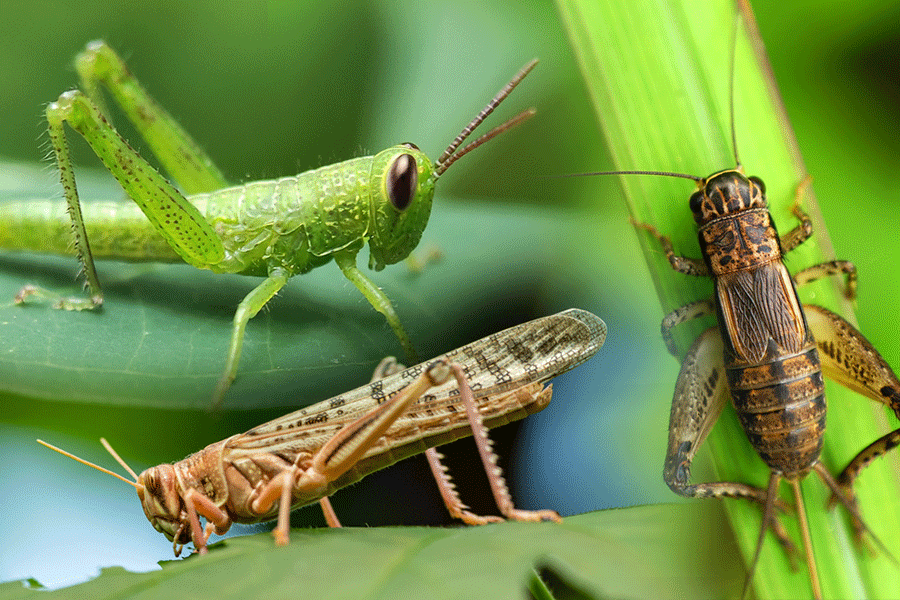Singapore's food watchdog on Monday said it has approved some 16 species of insects like crickets, grasshoppers and locusts for human consumption, adding to the internationally-renowned menu of global foods including Chinese and Indian dishes in the multi-ethnic city-state.
The much-awaited announcement comes to the delight of industry players who have been gearing supply and catering in Singapore to insects grown in China, Thailand and Vietnam, The Straits Times newspaper reported.
The approved insects include various species of crickets, grasshoppers, locusts, mealworms and silkworms.
The Singapore Food Agency (SFA) said that those intending to import or farm insects for human consumption or livestock feed must meet SFA’s guidelines, including providing documentary proof that the imported insects are farmed in regulated establishments with food safety controls and are not harvested from the wild.
Insects that are not on SFA’s list of 16 will have to undergo an evaluation to ensure that the species are safe to consume, the agency said.
Companies selling pre-packed food containing insects will also be required to label their packaging so that consumers can make informed decisions on whether to purchase the product.
Insect products will also be subject to food safety testing and those which are found to be non-compliant with the agency’s standards will not be allowed for sale, SFA said.
A UN report on the safety of lab-grown meats cites Singapore, the only country selling them, as a case study.
The SFA began public consultations on the possibility of allowing 16 species of insects for consumption in October 2022.
In April 2023, SFA said it would give the green light for these species to be consumed in the second half of 2023. This deadline was later pushed back further to the first half of 2024.
Reporting the announcement, the broadsheet said House of Seafood restaurant’s chief executive Francis Ng is cooking up a menu of 30 insect-infused dishes.
Of the 16 approved species, the restaurant will be offering superworms, crickets and silkworm pupae on its menu.
The insects will be added to some of its seafood dishes, such as salted egg crab, for example.
Before the approval, the restaurant had been getting five to six calls daily inquiring about its insect-based dishes, and when customers can start ordering them, Ng said.
“Many of our customers, especially young people who are under 30 years old, are very daring. They want to be able to see the whole insect in the dish. So, I’m giving them many options to choose from,” the Singapore daily quoted Ng as saying.
He anticipates that sales from insect-based dishes will increase his revenue by around 30 per cent.
Javier Yip, founder of logistics company Declarators, has set up another business to import insects for sale in Singapore, offering a range of bug snacks from white grub to silkworms, as well as crickets and mealworms.
Insects have been touted by the United Nations Food and Agriculture Organisation as a more sustainable alternative to meat, as they have high protein content and produce less greenhouse gas emissions when farmed.
Having already secured a licence to import these insects to Singapore, Yip is working with farms in China, Thailand and Vietnam to supply these bugs to the local market.
Japanese start-up Morus is looking to launch a range of silkworm-based products here, targeting both high-end restaurants and consumers, as they are high-income and health-conscious, said Ryo Sato, its chief executive.
Its products include a pure silkworm powder – which can be used as a food ingredient – along with matcha powder, protein powder and protein bars, which boast high protein and amino acid content, along with other key nutrients such as vitamins, fibre and minerals.
Acknowledging that Singaporean consumers do not have a history of consuming insects, Morus will also conduct more pop-up events and consumer workshops, Sato said.
Except for the headline, this story has not been edited by The Telegraph Online staff and has been published from a syndicated feed.










